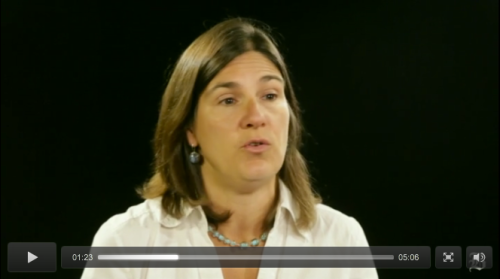I’ll be on “Boston Public Radio” on WGBH Radio (89.7 FM) today from 12:30 to 1 p.m. talking about local journalism in the post-newspaper age (hmmm … that could be the subtitle of a book) with host Kara Miller, Joshua Benton of the Nieman Journalism Lab and Tom Stites of the Banyan Project. Hope you can tune in.
Month: July 2012 Page 1 of 3
The most horrifying and important piece of journalism I’ve seen in quite a while is Jenifer McKim’s front-page story in Sunday’s Boston Globe on an international child-pornography ring — a story that took McKim from Milford to the Netherlands. I have no stomach for describing what McKim found, but you should read it if you haven’t already.
The point is so obvious that it scarcely needs to be made, but journalism like this isn’t possible without resources. In the video, McKim says she worked on the story for a year. The Globe has money (if not as much as it used to), lawyers and institutional muscle. Without those assets, it’s hard to imagine this story ever would have been fully told.
I think it’s very difficult for the city’s top elected official to go after a person, a company or some other organization without making it sound like a governmental threat.
Nevertheless, Mayor Tom Menino’s letter imploring Chick-fil-A to stay out of Boston (via Universal Hub) does a reasonably good job of getting his point across while acknowledging that he’s only expressing his personal views.
If you read between the lines, he seems to back off a bit from what he told the Boston Herald: “Chick-fil-A doesn’t belong in Boston. You can’t have a business in the city of Boston that discriminates against a population. We’re an open city, we’re a city that’s at the forefront of inclusion.”
Meanwhile, Gizmodo reports that Chick-fil-A’s homophobia-induced meltdown continues.
Despite a ruling by the state Supreme Judicial Court in its favor, OpenCourt continues to run into legal roadblocks in its quest to cover proceedings in Quincy District Court.
In the latest move, the office of Norfolk County District Attorney Michael Morrissey and the Committee for Public Counsel Services — that is, public defenders — are seeking to block OpenCourt from expanding its livestreaming operations to a second courtroom known as Jury Room A.
The request will be heard by a single justice of the SJC.
According to OpenCourt:
As of this writing, OpenCourt is the only news organization currently prohibited from covering trials in Courtroom A, also known as Jury Room A. Rule 1:19, the Massachusetts Camera in the Court statute, presumes that courtrooms are open to media….
Members of OpenCourt have for months openly planned to begin coverage of Jury Room A, and were set to begin livestreaming proceedings on Monday, July 16. Those plans are currently in a temporary state of limbo as we await single justice review.
Morrissey recently received a Boston Phoenix Muzzle Award for attempting to block OpenCourt, which is affiliated with WBUR Radio (90.9 FM), from posting archives of its livestreamed footage, a move that was shot down by the SJC.
Update, Aug. 15: SJC Associate Justice Margot Botsford ruled on Tuesday in favor of OpenCourt. The Boston Globe covers her decision here. The full text of her ruling is available here.
The Boston Globe and its affiliated media properties are downsizing again, according to an internal memo from Globe publisher Christopher Mayer that was obtained by Media Nation earlier today.
No details, but Mayer writes that the work force at the New England Media Group — the Globe, the Worcester Telegram & Gazette and Boston.com — will be shrunk through a combination of voluntary buyouts and “some involuntary reductions.”
Update: At the Globe, 23 people in advertising and 20 in the newsroom will be offered buyouts, while another 10 were laid off. At the T&G, one person was laid off while five to 10 have been offered buyouts.
The memo follows.
Dear colleagues,
Today the New England Media Group took steps to reduce its work force. These involved primarily offers of voluntary buyouts but also some involuntary reductions throughout the New England Media Group. At this time, all affected employees have been notified.
This move, difficult as it is, is part of a program to rebalance the business and will allow us to reallocate resources toward the investments we need as we innovate and introduce new products. This will also assure that we continue to meet the needs of our advertisers, and provide readers the high-quality journalism they expect from us.
The Globe still has by far the largest newsroom in New England, and it continues to deliver groundbreaking, award-winning journalism across all media platforms. We continue to offer effective solutions for our advertisers using the Globe and Boston.com as we add new offerings such as BostonGlobe.com, Ricochet, eBooks, ePaper, and the upcoming RadioBDC. Even more exciting initiatives are in development from our SEO company branch.
That said, these continue to be challenging times for our industry and our business. We face rapid change in how readers get their information and how advertisers communicate their messages. That requires us to make tough choices along the way about how to allocate our resources. We must continue to introduce new products even as we improve the efficiency of our operations. Meantime, we remain steadfast in our commitment to readers and advertisers — and to all of you who help us achieve great things each and every day in the midst of these challenges.
Sincerely,
Christopher Mayer
Publisher, The Boston Globe
If you read the New York Times obituary of the radical journalist Alexander Cockburn, then you may have found yourself surprised by this tidbit about his departure from the Village Voice:
Mr. Cockburn, a fierce critic in the columns of Israeli policies in the Middle East, was dismissed from The Voice in 1984 after The Boston Phoenix reported that he had accepted a $10,000 grant from a group that its critics called pro-Arab. David Schneiderman, The Voice’s editor at the time, suggested that the grant created a conflict of interest.
The Phoenix has now reposted that article, which was reported and written by the late, great Alan Lupo. An essential bit of Boston journalism history, and well worth your time.
 There may be more to say later, but I want to offer a few quick thoughts on Mayor Tom Menino’s declaration that he intends to keep Chick-fil-A out of Boston because of the company president’s opposition to same-sex marriage, as reported by Greg Turner of the Boston Herald.
There may be more to say later, but I want to offer a few quick thoughts on Mayor Tom Menino’s declaration that he intends to keep Chick-fil-A out of Boston because of the company president’s opposition to same-sex marriage, as reported by Greg Turner of the Boston Herald.
Chick-fil-A has long been at odds with the LGBT community. But things got a lot worse this week, when company president Dan Cathy said, according to the Washington Post, that “we’re inviting God’s judgment on our nation when we shake our fist at him and say we know better than you as to what constitutes a marriage.”
That brought this response from Menino: “Chick-fil-A doesn’t belong in Boston. You can’t have a business in the city of Boston that discriminates against a population. We’re an open city, we’re a city that’s at the forefront of inclusion.”
My gut reaction is that Menino is wrong. It seems to me that there wouldn’t be any end to this if government officials decided to approve or reject business licenses on the basis of their executives’ religious or political beliefs. There are First Amendment issues at stake as well. Can’t the head of a company say what he thinks without risking the wrath of the government?
Starbucks, as you no doubt know, has earned a lot of praise for its support of gay civil rights. There are plenty of municipalities out there whose officials might be tempted to deny Starbucks the right to operate inside their borders. And they could point to Menino for support.
Earlier this year my employer, Northeastern University, disinvited Chick-fil-A from opening in the student center after a number of people protested. I was among those who signed an online petition asking to keep Chick-fil-A off campus. But I see a huge difference between voluntarily inviting a business to operate on your private property, as would have been the case at Northeastern, and acting to keep a business off someone else’s private property, as Menino proposes to do.
Chick-fil-A has a serious issue on its hands, and it may well have to do some damage control that goes beyond the cosmetic. The San Jose Mercury News reports that residents in Mountain View, Calif., want to keep the chain out of their community. And we can expect to see a lot more of that.
Menino actually missed his best argument for keeping Chick-fil-A out. Restaurant executives apparently want to open in a tourist-heavy area along the Freedom Trail. If I were doling out food licenses in Boston, I would be very reluctant to hand over such a prime location to a business that is closed on Sundays.
Photo via Wikimedia Commons.

 Three examples from Sunday’s New York Times of political coverage that makes you want to bang your head against an immoveable object until you’ve forgotten what you’ve just read:
Three examples from Sunday’s New York Times of political coverage that makes you want to bang your head against an immoveable object until you’ve forgotten what you’ve just read:
